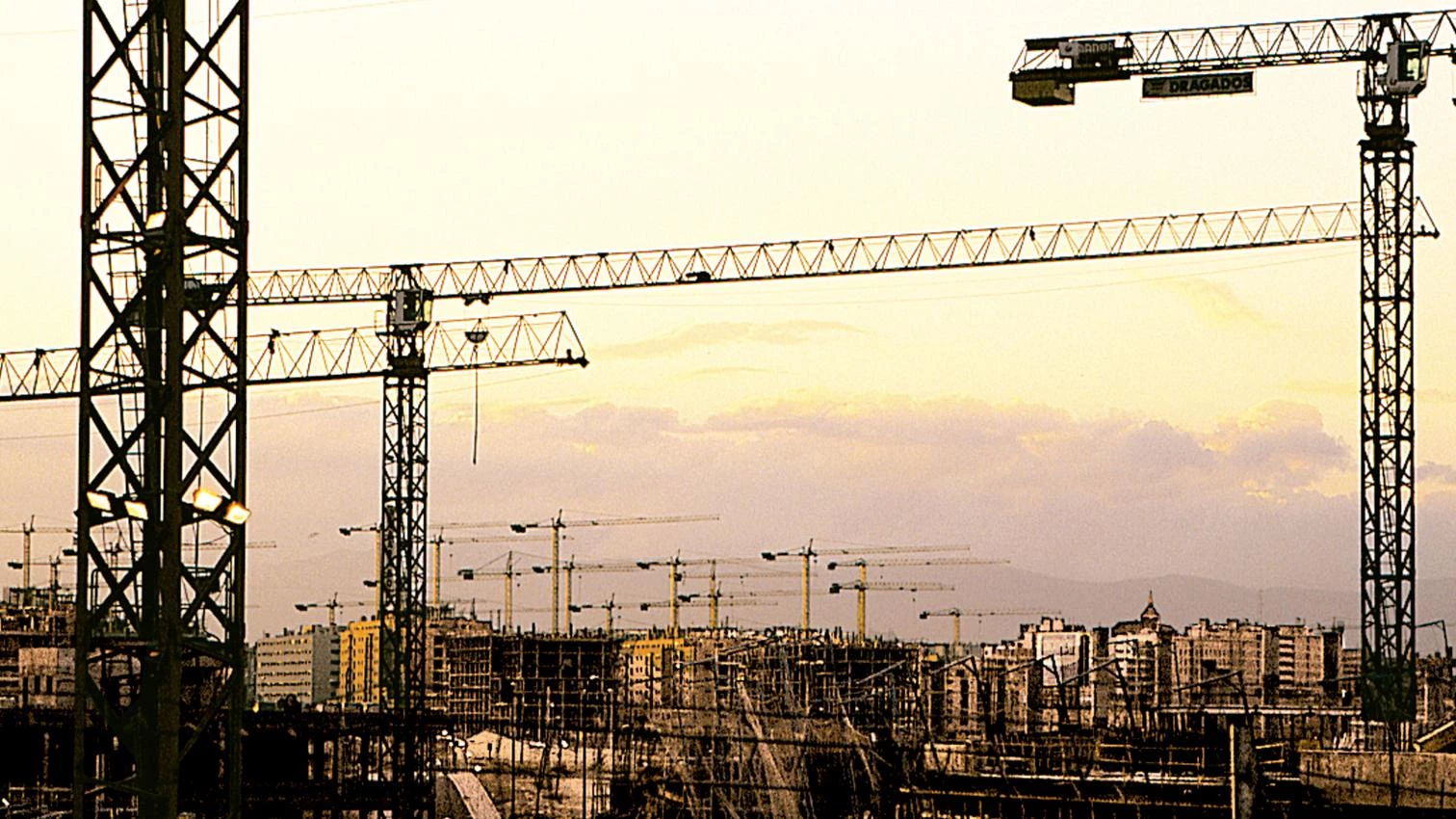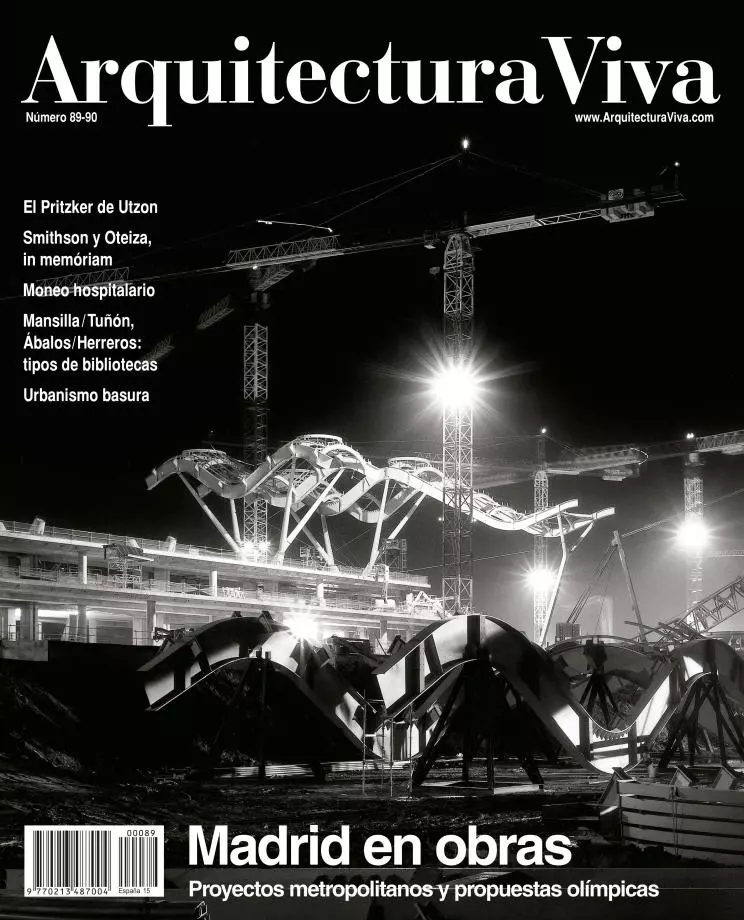
Madrid claims not having a distinctive profile, and this is probably no small advantage. When most live under the weight of identity, lacking character seems to be a luxury that lifts the burden of inconditional devotion. We inhabit Madrid without being inhabited by it, and that versatile connection sums up the essential freedom of the metropolis: without tribal loyalties, because its population crowds in migratory waves, and without vernacular roots, because its territory adds up in expansive pulses, the blood and land of Madrid are fuel and asphalt. The traditional city invited to rise ‘from Madrid to heaven’; and today’s generic city has replaced the motto with a more cynical one: ‘from Madrid the land’, and has turned the boom of real estate into its main industry. So, the parasitic city of Franco’s regime, described by Cela as a mix between Navalcarnero and Kansas City inhabited by bureaucrats, is now a hectic town that only looks at its reflection on the convex mirror of the American model.
Third European city in population, behind the colossal conurbations of London and Paris, and second city of the continent in building activity, behind the Berlin rebuilt to face the demand of its recovered capital status, the Madrid of global vocation that aspires to the 2012 Olympic Games – in competition with eight other cities of the world –is an overworked engine whose loud tachycardia could be a sign either of vitality or of doping. Before the astonishment of the self-absorbed Barcelona citizens, who have expressed their diagnosis in two journalistic essays by their former major (“Madrid is leaving”, “Madrid is gone”), this city on steroids flaunts its chemical muscles to play in an urban league which is more demanding than the calm European emulation where Maragall was able to place himself as reference and paradigm. Madrid has chosen to enter the top division, but it is yet to be seen if its endless energy will be good in the long run for urban health.
Forced to pass the technical inspection required by an olympic candidacy, until 2005 Madrid will undergo a thorough check-up that may be useful to limit the excess use of real estate drugs. Just as sport federations try to control the abuse of stimulants, the emphasis of the IOC on the project’s respect for the environment may have the positive effect of bringing down the construction fever that perforates the ground and pierces with cranes the sky of Madrid. But Vicente Verdú has explained that after the tragic capitalism of production and the trivial capitalism of consumption, this capitalism of fiction is essentially tricky, and it could happen that the effort to pass the olympic exams with sustainability à la Sydney may end up being mere make-up to dress up the city with ecological cosmetics. The new major Ruiz-Gallardón begins his term of office with a cement bubble, and we must trust his balancing talent to keep it floating in the thin air of this feverish city.





